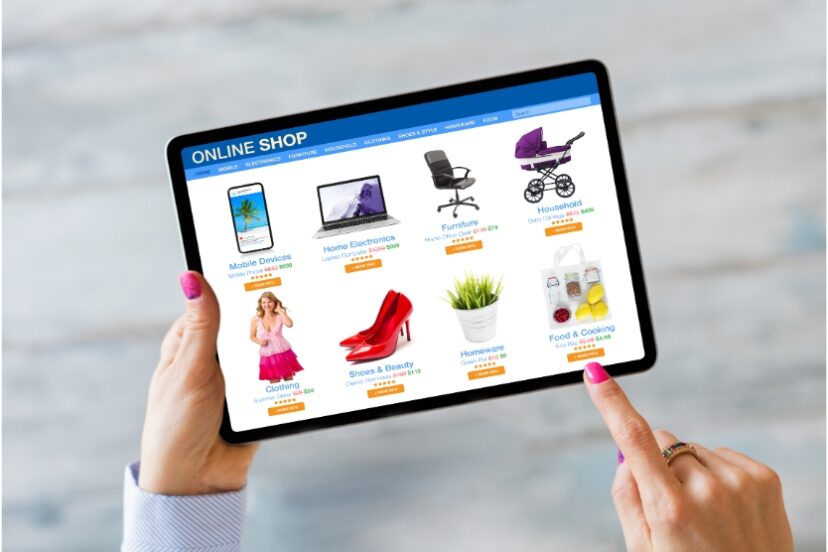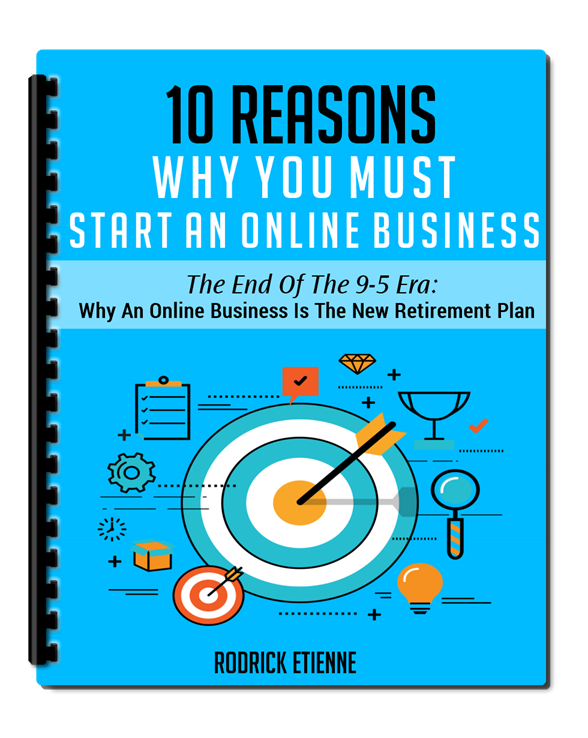Building a successful affiliate store requires the right tools and features that streamline the entire process…
10 Common Mistakes To Avoid When Starting An E-commerce Store

Starting an e-commerce store is an exciting venture filled with opportunities to reach customers worldwide and build a thriving business.
However, navigating the path to success requires careful planning and execution to avoid pitfalls that can hinder growth.
Whether you’re selecting the right platform, designing a user-friendly website, or developing a strong marketing strategy, every decision can have a significant impact on your store’s performance.
By understanding and avoiding common mistakes, you can set yourself up for long-term success and create a seamless shopping experience that keeps customers coming back.
Let’s uncover the key missteps to steer clear of and ensure your e-commerce store thrives in a competitive market.
1)) Lack Of Clear Niche
One of the biggest challenges new e-commerce entrepreneurs face is failing to define a specific niche.
Attempting to cater to a broad audience or offering an overly diversified range of products often results in a lack of focus, which can dilute your brand identity and hinder your ability to connect with a dedicated customer base.
When you determine your niche, it allows you to understand your target audience better, fine-tune your marketing efforts, and create a more cohesive brand message.
This focused approach not only helps in establishing a competitive edge but also builds trust and loyalty among your customers.
By narrowing your focus, you can stand out in a crowded marketplace and deliver value unique to your chosen segment.
2)) Poor Website Design
A poorly designed website can significantly hinder the success of your e-commerce store. Visitors often form first impressions within seconds, and if your site appears cluttered, difficult to navigate, or unprofessional, they may leave without browsing further.
Ensuring a user-friendly layout with clear navigation is key to keeping potential customers engaged.
Elements like fast-loading pages, mobile responsiveness, and visually appealing design directly influence the user experience and can impact your conversion rates.
Featuring intuitive search functionality, clear call-to-action buttons, and high-quality product visuals fosters a sense of trust and encourages seamless interactions.
Investing in quality design enhances both usability and credibility, setting the foundation for a positive and lasting customer experience.
3)) Ignoring Mobile Optimization
Failing to ensure that a website functions seamlessly on mobile devices can significantly hinder the growth of an e-commerce business.
With the majority of online shoppers now using smartphones and tablets to browse and make purchases, having a platform that is easy to navigate, visually appealing, and responsive on smaller screens is crucial.
Poor mobile experiences, such as slow loading times, unresponsive buttons, or misplaced content, frustrate users and can lead to lost sales and a decrease in brand loyalty.
By prioritizing a mobile-friendly interface, businesses cater to the needs of their audience, improve customer satisfaction, and foster higher conversion rates in an increasingly mobile-driven market.
4)) Weak Product Descriptions
Clear and engaging product descriptions are essential for the success of any e-commerce store.
These descriptions serve as the primary source of information for potential buyers, helping them understand the value, features, and benefits of a product.
A strong description not only highlights the unique attributes of the item but also addresses potential customer concerns, such as material quality, dimensions, or usage instructions.
Crafting well-written, detailed descriptions ensures that customers feel confident in their purchasing decisions.
An effective product description can enhance a store’s credibility and reduce the likelihood of returns or dissatisfaction.
Each product description represents an opportunity to communicate with your audience and persuade them to choose your store over competitors.
5)) Ineffective Marketing Strategy
A well-crafted marketing strategy is essential for the success of any e-commerce business.
Many entrepreneurs underestimate the importance of understanding their target audience, which can lead to poorly executed campaigns that fail to resonate.
It is crucial to research customer preferences, behaviors, and pain points to design campaigns that effectively capture their attention.
Utilizing multiple channels, such as social media, email, and paid advertisements, can help increase visibility and reach diverse audiences.
Consistency in messaging and branding is equally important, as it helps build trust and familiarity with potential customers.
Without a solid plan in place, businesses run the risk of wasting resources and missing valuable growth opportunities.
6)) Neglecting Customer Service
Providing exceptional customer service is crucial for the success of any e-commerce store.
Customers who have a positive experience are more likely to become loyal shoppers and recommend the business to others.
This means responding promptly to inquiries, resolving issues efficiently, and ensuring that the overall interaction leaves a lasting impression.
A lack of attention to customer service can lead to negative reviews, diminished trust, and a poor reputation that is difficult to repair.
E-commerce businesses should strive to understand their customers’ needs, maintain open communication, and demonstrate a genuine commitment to their satisfaction.
By prioritizing these efforts, businesses can build a strong foundation for long-term growth and success.
7)) Overlooking SEO Practices
Failing to pay attention to SEO practices can significantly hinder the success of an e-commerce store.
Search engine optimization is a critical factor in driving organic traffic to your website, ensuring that potential customers can discover your products or services online.
Focusing on elements such as keyword research, high-quality content, meta descriptions, and user-friendly website navigation can help improve your store’s visibility on search engines.
Ignoring these aspects reduces your chances of ranking higher in search results, making it difficult for your business to compete in a crowded digital marketplace.
An SEO strategy not only enhances your searchability but also builds credibility and trust with your audience, ultimately contributing to sustained growth and profitability.
8)) High Shipping Costs
One of the key challenges for new e-commerce businesses is ensuring that shipping costs are reasonable and competitive.
High shipping fees can quickly discourage potential customers, leading to abandoned carts and reduced sales.
To address this issue, businesses should carefully research effective ways to streamline their shipping process, negotiate better rates with shipping providers, and explore options like free or flat-rate shipping.
Transparent communication about shipping fees during the checkout process is crucial to maintaining trust and reducing surprises for customers.
Striking a balance between affordability and efficient delivery not only enhances customer satisfaction but also strengthens the foundation for long-term success in the e-commerce industry.
9)) Ignoring Analytics And Data
Analytics and data play a critical role in guiding the direction and growth of an e-commerce store.
Neglecting these valuable resources means missing out on essential insights that can shape business strategies and improve decision-making.
Data provides a clear picture of customer behavior, popular products, sales trends, and overall performance, which are all crucial for identifying areas that require improvement.
By understanding this information, businesses can tailor their marketing efforts, enhance the customer experience, and anticipate future demands.
Ignoring such tools not only limits the ability to grow but also puts the business at a disadvantage in a highly competitive market.
Proactively utilizing analytics ensures that every decision is informed, paving the way for consistent success and innovation.
10)) Underestimating Competition
One of the biggest pitfalls for new e-commerce entrepreneurs is failing to grasp the competitive landscape.
The digital marketplace is vast and filled with countless businesses vying for consumer attention, so it’s crucial to thoroughly research competitors in your niche.
Understanding their strategies, pricing, marketing approaches, and customer service tactics can provide invaluable insights into what works and where gaps exist.
Neglecting this step could result in blind spots that delay progress, hinder sales, and make it harder to build a unique brand identity.
By acknowledging competition as an opportunity to learn and innovate rather than as an intimidating obstacle, businesses can position themselves to make strategic moves that set them apart in the market.
Conclusion
Thoroughly understanding the competitive landscape is an essential step for any business aiming to thrive in today’s dynamic marketplace.
By evaluating competitors, organizations can uncover valuable insights, refine their strategies, and identify gaps that lead to innovation.
This process not only enables businesses to sharpen their focus but also empowers them to create offerings that stand out and resonate deeply with their target audience.
Instead of fearing competition, companies can view it as a catalyst for growth and creativity, using it as a guide to evolve and adapt.
A proactive and deliberate approach to competitive analysis ensures that every move is strategic, every decision is informed, and every effort is directed toward long-term success.
When businesses embrace this mindset, they position themselves to not only survive but to flourish, delivering unparalleled value and building lasting connections in their industry.





